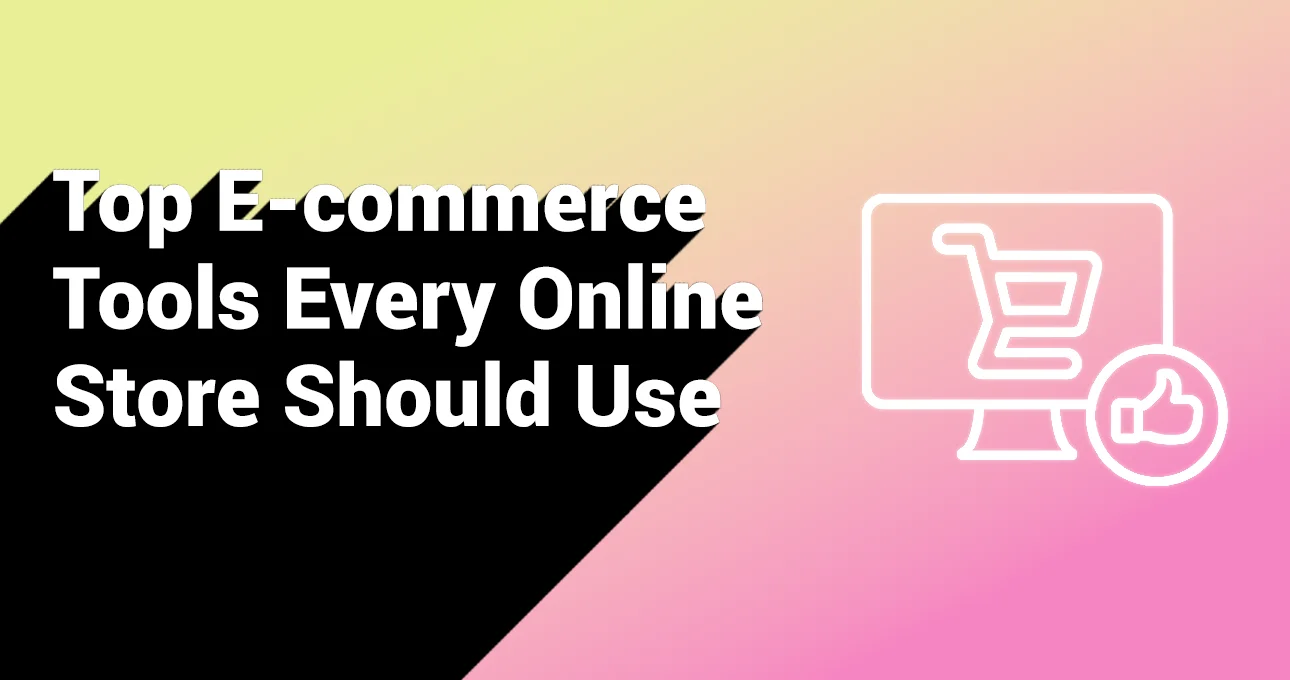Top E-commerce Tools Every Online Store Should Use
Top E-commerce Tools Every Online Store Should Use
Running a successful e-commerce business requires more than just great products and an attractive website. To stay competitive, you need the right tools to streamline operations, enhance customer experiences, and boost sales. Here’s a curated list of must-have tools for email marketing, analytics, inventory management, and more.
Email Marketing Tools
Email marketing is one of the most effective ways to engage customers and drive sales. These tools can help you craft personalized campaigns and automate your email workflows:
1. Mailchimp
- Why Use It: Perfect for beginners and small businesses, Mailchimp offers user-friendly templates, automation features, and robust analytics.
- Key Features: Email segmentation, A/B testing, and pre-designed templates.
2. Klaviyo
- Why Use It: Ideal for e-commerce businesses, Klaviyo integrates seamlessly with platforms like Shopify and Magento.
- Key Features: Advanced customer segmentation, predictive analytics, and dynamic personalization.
3. Sendinblue
- Why Use It: A versatile tool that combines email marketing with SMS campaigns.
- Key Features: Automation, transactional emails, and customizable templates.
Analytics Tools
Understanding customer behavior and website performance is crucial for growth. These analytics tools provide actionable insights:
4. Google Analytics
- Why Use It: A comprehensive tool for tracking website traffic and user behavior.
- Key Features: Real-time data, audience segmentation, and conversion tracking.
5. Hotjar
- Why Use It: Perfect for visualizing user interactions on your website.
- Key Features: Heatmaps, session recordings, and customer surveys.
6. Shopify Analytics
- Why Use It: Tailored for Shopify users, this tool provides in-depth sales and customer data.
- Key Features: Product performance reports, customer acquisition insights, and traffic analytics.
Inventory Management Tools
Efficient inventory management ensures you never miss a sale due to stockouts or overstocking. These tools help streamline your supply chain:
7. TradeGecko (now QuickBooks Commerce)
- Why Use It: A robust solution for managing inventory, orders, and warehouses.
- Key Features: Multi-channel inventory sync, order tracking, and detailed reporting.
8. Zoho Inventory
- Why Use It: A cost-effective tool for small to medium-sized businesses.
- Key Features: Inventory tracking, order management, and integrations with popular e-commerce platforms.
9. Cin7
- Why Use It: Ideal for businesses with complex supply chains.
- Key Features: Real-time stock updates, warehouse management, and B2B order solutions.
Customer Support Tools
Providing excellent customer support is essential for building loyalty and trust. These tools help you stay connected with your customers:
10. Zendesk
- Why Use It: A leading customer support tool that centralizes communication across multiple channels.
- Key Features: Ticket management, live chat, and AI-driven automation.
11. Gorgias
- Why Use It: Designed for e-commerce businesses, Gorgias integrates with Shopify, Magento, and BigCommerce.
- Key Features: Automated responses, live chat, and order management directly within the dashboard.
12. Tidio
- Why Use It: Combines live chat with chatbots to offer 24/7 customer support.
- Key Features: Multichannel communication and AI-powered chatbots.
Marketing Automation Tools
Automating marketing efforts can save time and ensure consistency. These tools are top picks for e-commerce marketing:
13. HubSpot
- Why Use It: A comprehensive CRM and marketing automation tool for businesses of all sizes.
- Key Features: Lead generation, email automation, and detailed analytics.
14. Omnisend
- Why Use It: Tailored for e-commerce, Omnisend integrates with popular platforms to deliver omnichannel campaigns.
- Key Features: SMS, email, and push notification automation.
15. ActiveCampaign
- Why Use It: Combines email marketing with CRM features for a holistic approach.
- Key Features: Automation workflows, customer segmentation, and advanced reporting.
Conclusion
Equipping your e-commerce business with the right tools can streamline operations, improve customer satisfaction, and drive growth. Whether you’re just starting or looking to scale, these tools offer the functionality and flexibility you need to succeed.
Ready to take your e-commerce store to the next level? Start integrating these tools today and watch your business thrive!


We are actively engaging with waste to energy operators, concrete manufacturers, and the wider construction industry.
Most innovative and successful builders and real estate enterprises in the country, has been selected for the design-build expansion of Airsides A and E at Tampa International Airport.